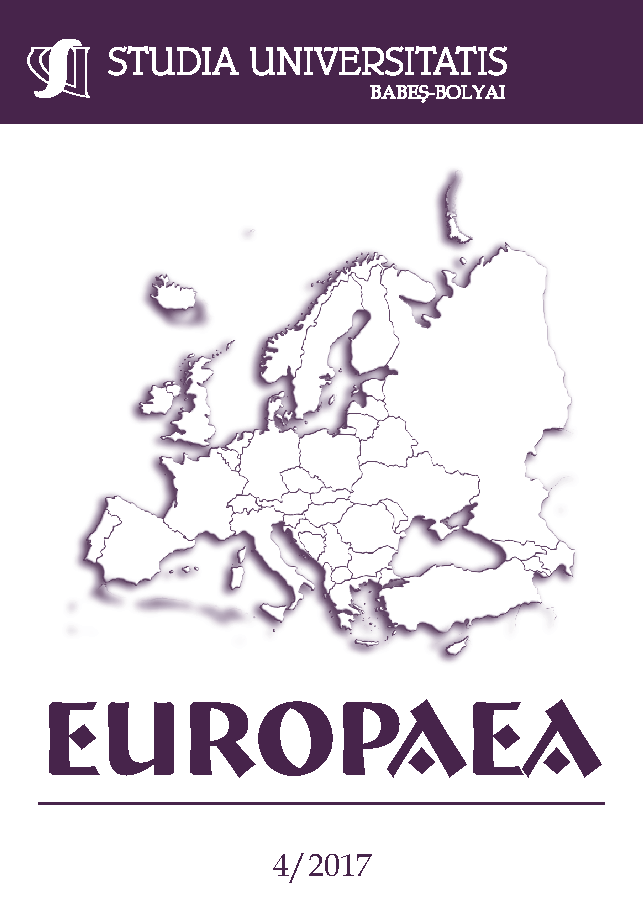MUTUAL RELATIONS OF THE CAUCASIAN COUNTRIES
DOI:
https://doi.org/10.24193/subbeuropaea.2017.4.04Keywords:
cooperation, development, communication, etiquette, culture, relationsAbstract
The paper provides a brief review of establishment and development of relations in Azerbaijan over the last 25 years. It describes the different phases of this development and how cooperative country has traditionally dealt with the benefits. The paper notes that to expand an effective cooperation the nations need to work on a particular field following various rules. The author mentions specific tips and groups of communication culture and etiquette that is very important to set up on a firm and evolve the mutual cooperation and relations between countries. The cooperation of individual states in a certain format in the Caucasus region, which is one of the most geopolitically vulnerable regions, can cause various reactions. If we take into account the fact that historically the Caucasus was in the focus of attention not only of regional forces but also of global forces, the expected backwardness of these reactions is expected. Therefore, it is important to emphasize the importance, first of all, of the political will for the trilateral cooperation of Azerbaijan, Georgia and Turkey. The basis of tripartite cooperation between Azerbaijan, Georgia and Turkey was built on the basis of economic interests and meets the national interests of all three countries. Since Azerbaijan is a source and producer of hydrocarbon resources, Georgia has a favorable geographical location and transit potential, Turkey has domestic energy demand and is a regional hub, all this is a natural basis for tripartite cooperation. The joint creation of economic and transport corridor makes this approach a historical necessity. Thus, the trilateral format of cooperation between Azerbaijan, Georgia and Turkey can be called a successful model, which can serve to build sustainable peace and progress in the Caucasus.
References
Abdullayev, A.S. (1968), About speech etiquette and speech skills, Bakı: AzerPublish.
Adler, Nancy J.; Gundersen, Allison (2007), International Dimensions of Organizational Bahavior, Mason: Thomson Cengage Learning Press.
Anar, Valiyev (2011), "Azerbaijan and the North Caucasus: A Pragmatic Relationship", in Caucasus Analytical Digest, Baki.
Battersby, Stephen (2016), Clay’s Handbook of Environmental Health, London: Routledge.
Çelikpala, Mitat; Veliyev, Cavid (2015), Azerbaijan-Georgia-Turkey: An Example of a Successful Regional Cooperation, Kadir: Kadir HAS University Press.
Derluguian, Georgi M. (2005), Bourdieu’s Secret Admirer in the Caucasus: A world-System Biography, Chicago: University of Chicago.
German, Tracey (2016), Regional Cooperation in the South Caucasus: Good Neighbours or Distant Relatives?, New York: Routledge.
Ismayilov, Murad; Graham Norman A. (2016), Turkish-Azerbaijani Relations: One Nation—Two States?, London: Routledge.
Kraus, Sidney; Davis, Dennis (1976), The effects of mass communication on political behavior, Pennsylvania State University Press.
Kunkel, Lilly Marlene (2010), International Business Etiquette and Manners: An Investigation of the Key Differences in Practice between the United States of America and Japan and their Effects upon Communication and Working Relatioships, Germany: GRIN Verlag.
Langford, Beverly Y. (2005), The Etiquette Edge: The Unspoken Rules for Business Success, New York: Amacom Div American Mgmt Assn.
Little, Angela W., Leach Fiona E. (2013), Education, Cultures, and Economics: Dilemmas for Development, New York: Routledge.
Nazarly, Amina (2017), “Azerbaijan and Turkey ties: All-weather Friends”, in AzerNewsAz, 3 January 2017.
Neuliep, James W. (2014), International communication: A contextual Approach, 6th Edition, London: SAGE Publications.
Petersen, Alexandros (2016), Integration in Energy and Transport: Azerbaijan, Georgia, and Turkey, PhD Thesis at the Department of International Relations of the London School of Economics, London: Rowman&Littlefield.
Reece, Barry; Reece, Monique (2016), Effective Human Relations: Interpersonal and Organizational Applications, London: Cengage.
Scapp, Ron; Seitz, Brian (2012), Etiquette: Reflections on Contemporary Comportment, NY: SUNY Press.
Sengupta, Nilanjan (2007), International Human Resource Management, ND: Excel Books India.
Youngman, Frank (2000), The Political Economy of Adult Education and Development, Chicago: University of Chicago Press.
Zeynalov, Ibrahim (2011), “20 Years On: 1991-2011 Independence Gained”, in Visions of Azerbaidjan, Baki, in http://www.visions.az/en/news/317/06e6f475/.
Zhiltsov, S. Sergey; Zonn, Igor S.; Konstyanoy, Andrey G. (2016), Oil and Gas Pipelines in the Black-Caspian Seas Region, NY: Springer.
Downloads
Published
How to Cite
Issue
Section
License
Copyright (c) 2017 Studia Universitatis Babeș-Bolyai Europaea

This work is licensed under a Creative Commons Attribution-NonCommercial-NoDerivatives 4.0 International License.






